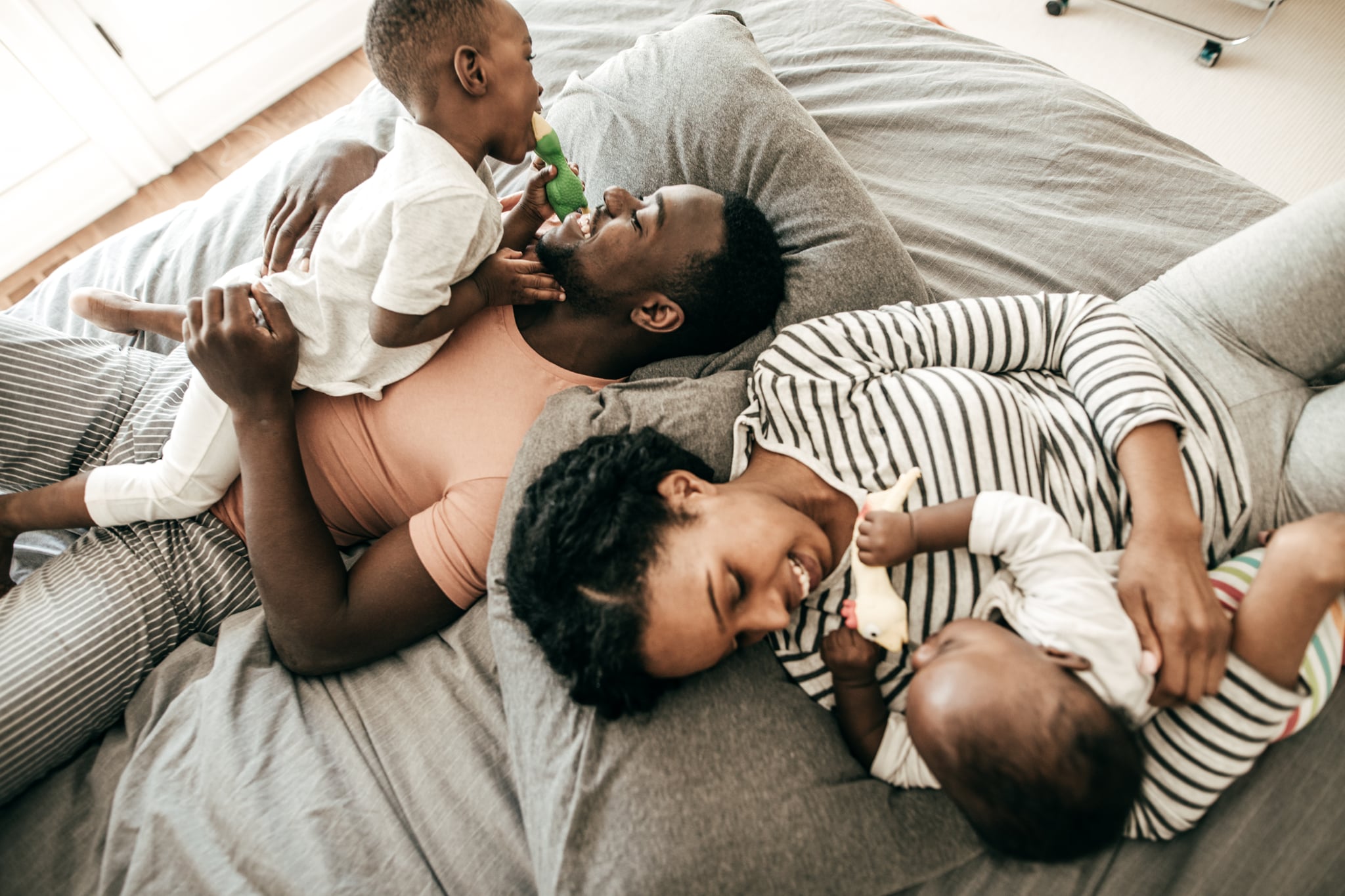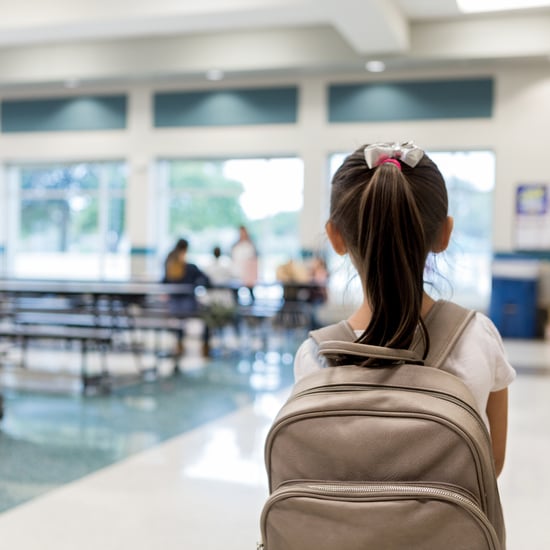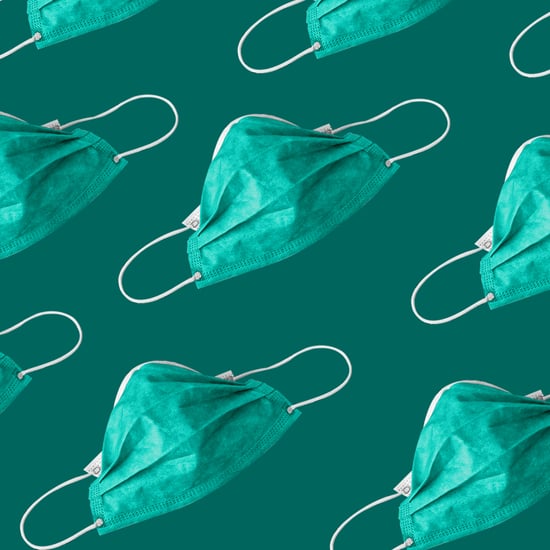Biden Administration's Impact on Families in First Year
Biden's First Year in Office: A Look At What It's Meant For Families

It has officially been one year since President Joe Biden first took office, and back on Jan. 20, 2021, citizens were faced with an unrelenting pandemic and a deeply divided nation. On that front, not much seems to have changed: the highly contagious Omicron variant has driven coronavirus case counts to record levels in the United States, which has upending nearly all aspects of life. The surge has caused worker shortages that have forced businesses to close up shop, hospitals to operate at capacity, and schools to shut down.
This is certainly not the "return to normalcy" Biden campaigned upon, but what has the past year meant for families in particular? We spoke to Jennifer Klein, the co-chair of the White House Gender Policy Council, to reflect on the key successes and setbacks – as well as what parents can expect in the year ahead.
Vaccinations
At the start of his presidency, the country's vaccination campaign was jet getting started with only 1 percent of US adults fully vaccinated, according to White House data. A year later, more than half a billion COVID-19 vaccine doses have been administered and 74 percent of adults are fully inoculated. Overall, nearly 63 percent of the total US population, which includes young children under five years old who are still ineligible to be dosed, are vaccinated.
"COVID started as a health crisis and then layered on top of it an economic crisis, and then layered on top of it a caregiving crisis, which has been a trifecta, largely for women and families."
"Getting shots in arms and saving lives is No. 1," Klein tells POPSUGAR. "The vaccination program that the president launched has meant that more than 200 million Americans are fully vaccinated. And millions of teenagers and children are of course now getting vaccinated and tens of millions of Americans are getting booster shots. That has obviously contributed to improving health."
Yet challenges still remain, from vaccine hesitancy — particularly in the BIPOC community and with children who are less at risk of severe complications from contracting the virus — to delays in the Pfizer vaccine rollout for babies, toddlers, and preschoolers. And recent testing shortages have made the Omicron surge debilitating for families struggling to access childcare.
Earlier this month, Biden pledged to make a billion at-home tests available, for free, to Americans and that his administration plans to do the same with 400 million N95 masks. Of course, N95 masks are currently not available anywhere for children, and parents have struggled to source child-size KN95 masks, which are nearly as effective as N95s at preventing viral transmission.
"We are of course cognizant of what we are still struggling with, with Omicron, but this has been a huge public health response," Klein notes before offering a call to action. "Be your own public health advocate, ensuring that people in your community, people who trust you to talk to them, maybe in a way that they don't trust somebody in Washington or far away. Because that remains the most important thing we can do to get this country back on track and to end this pandemic. Vaccinating people and wearing masks are the two public health strategies that we know work."
Child Poverty
Back in March 2021, Biden signed the American Rescue Plan into law with a $1.9 trillion COVID relief package that gave parents across the nation monthly payments as part of the expanded Child Tax Credit program. Starting in July, families earned up to $3,600 per child from the federal government. According to a report from the Centre on Budget and Policy Priorities, this increase would cut the number of children in poverty by "more than 40 percent," with nine out of 10 American children benefiting.
The tax credit wasn't new, but it had previously only been available to those earning enough income to owe taxes. BIPOC parents were statistically less likely to qualify. Instead of an annual lump sum, the new program released checks monthly, a crucial need when one unexpected expense could mean the difference between taking on more debt or losing it all, Vice President Kamala Harris said at the time.
The Child Tax Credit expired at the end of 2021 after Congress failed to pass legislation that would have extended it.
Mothers in the Work Force
The majority of pandemic-related job losses have been experienced by women, according to a report from the National Women's Law Centre. Since February 2020, women in the US — many of whom are working mothers ostensibly pushed out to handle childcare needs during unpredictable lockdowns — have lost more than 5.4 million net jobs, and the impact of this mass exodus from the labour force will be long-lasting. The influx of women back into the job market has yet to materialize: the number of women working or looking for work actually fell in September from August. For men, that number rose. And even with children more or less back in school, the number of mothers of young children who were employed in September was nearly four percent below pre-pandemic levels, whereas the decline was just one percent for fathers.
"We still have issues with women's labour force participation. It's still the lowest that it's been in 30 years."
"We still have issues with women's labour force participation," Klein acknowledges. "It's still the lowest that it's been in 30 years."
Still, Klein doesn't discount the opportunities afforded by Biden's efforts at getting Americans back to work: "The president has grown the economy faster than it has been grown in decades and added 6.4 million jobs, which is more in one year than ever on record. And weekly unemployment claims are down near to a level we haven't seen since 1969. So, that is strong economic growth that obviously has tremendous impact again on women and families."
She also references the bipartisan infrastructure plan, which — after long negotiations — was finally signed into law in November with more than a dozen Republican votes in the Senate. It was a significant legislative accomplishment, especially for a first-year president, but one that Klein admits "people don't look at and think, 'Oh, women. Oh, kids.'"
But in fact, although the American Rescue Plan was clearly focussed on stabilizing families, there are pieces of this infrastructure plan that promise to help them as well.
"A huge focus of the Gender Policy Council and of the work we do going forward," Klein says. "That law will create millions of jobs and what is our job to do now is ensure that women have access to those jobs and have the training that they need for those jobs. Many of those jobs are jobs that women have been underrepresented in. So, for example, last week, we had a roundtable on women and trucking. Because we have an issue with the supply chain, and one of the things we need to do is get more people into the trucking industry. So we are doing whatever we can to see how we can help women both get into the industry but also support them in ways that maybe has not been done before, so that there are safe jobs, they're good jobs, they're fair jobs. And that's just one small example of how, as we implement the Bipartisan Infrastructure Law, we are doing it with an equity lens and ensuring that women have access to those jobs. Because that's not just good for women. It's not just good for their families or employers, but it's also just good for the economy overall."
Of course, a key reason women are underrepresented in certain industries, including trucking, is because of the employment sacrifices principally made by mothers, from maternity leave following the birth of a child to the disproportionate need for flexibility to deal with child care needs that fall mostly to women in even the most progressive households.
"More Black women and other women of colour lost their jobs. The other issue has been that the people who have lost jobs are in industries where women of colour are predominantly represented, whether that's retail, or the care industry, or people who work in restaurants."
"The flip side of what I said about women and trucking is that the jobs that women do and are overrepresented in are often jobs that have less job quality," Klein says before noting how care work — nurses, childcare workers, and in-home health aids — are the top female-dominated occupations with some of the tightest earning potential. "They are not paid as well. As we think about fixing, in this case, the care infrastructure, we also need to ensure that those are good, fairly paid jobs, jobs with dignity, jobs with adequate benefits."
But there is another systemic reason women's employment is as low now as it was in the early 1990s: it's been harder than ever for Black women to re-enter the workforce.
Although Black mothers — two-thirds of whom are equal, primary, or sole earners in their households — have historically higher workforce participation rates than other moms, their unemployment rate amid the pandemic is far higher, at nearly 11 percent for Black women versus 7.6 percent for white women.
"More Black women and other women of colour lost their jobs," Klein says. "The other issue has been that the people who have lost jobs are in industries where women of colour are predominantly represented, whether that's retail, or the care industry, or people who work in restaurants."
Interestingly, many of these industries that employ low-wage workers, like hospitality, have the highest rate of job openings. There is a clear disconnect within the private sector between what potential female workers are being offered and what they have the capacity to accept.
"Go to your employers, know what you are asking for, and ask for it, and business owners can take action to put policies and practices in place that make sure work is safe, fair, and equitable," Klein says. "You have to look at the various layers here. That's another part of our plan going forward."
Child Care
"I've noted many times over the course of the last year and a half that COVID started as a health crisis and then layered on top of it an economic crisis, and then layered on top of it a caregiving crisis, which has been a trifecta, largely for women and families," Klein says. "A lot of the things that the president and the vice president have done in the first year have gone a long way to actually address some of these issues."
Vaccinations and tax relief aside, Klein references the fact that schools are 96 percent open, compared to 46 percent a year ago.
The sweeping Build Back Better plan has also been a top priority for this administration. It includes a wish list of priorities such as an extended tax cuts for middle-class families with children, lowering the costs of child care, free universal preschool, and two additional years of community college for teens. Republicans have balked at the program, as has some moderate Democrats. Namely, holdout Senator Joe Manchin has been at odds with Biden over the social spending bill for months.
"That's why we're continuing to fight for Build Back Better, which will lower costs in really important ways for American families," Klein says. "And the piece that has been a real issue, particularly for women, is child care and the care economy, and helping people both afford care but also helping the care providers in the years ahead."
She explains that the key issues have been access and affordability: "It's about ensuring that there are childcare centres that are open and available wherever you live, and importantly, that you can afford that care. One of the things that we know is that child care costs are too high for families. People should not have to spend more than 7 percent of their income on care. And at the moment, depending on where you live, you can spend a lot more than that. The same is true for home and community-based care for older relatives or relatives with disabilities. We need to make sure that that infrastructure is in place for quality elder care as well."
Maternal Care and Family Leave
The Build Back Better plan also includes a proposed $3 billion investment to address the nation's maternal health crisis, which is on top of $200 million to improve maternal and infant health outcomes. Back in April 2021, Biden issued the first-ever proclamation on Black Maternal Health Week, which highlighted the specific disparities that Black women face in pregnancy and childbirth.
More divisive still has been the push for establishing national and comprehensive paid family and medical leave. Currently, the US is one of just eight countries in the world without any national paid leave. Since the Family and Medical Leave Act was introduced in 1993, companies with 50 or more employees have only been required to provide up to 12 weeks of unpaid time off.
At his first address to Congress in April, Biden announced that his plan would "finally provide up to 12 weeks" paid. By October, the proposal had been slashed to just four paid weeks. Most likely, paid leave — along with other proposals like extended child tax credits — could be pared down or jettisoned from the bill completely in order for it to pass Congress.
Representation
Parents, overburdened and stretched thin for nearly two straight years, might feel there has been little they could do to steer policy to benefit their families and communities, but Klein disagrees.
"We have a government and a cabinet that looks like America. Half of the president's cabinet are women, and majority are people of colour."
"I will point out another thing that I'm really proud of in the Biden-Harris Administration, is that we have a government and a cabinet that looks like America," Klein says. "Half of the president's cabinet are women, and majority are people of colour. The president has appointed judges in unprecedented numbers. Today, he announced a slate of judges, seven of the eight are women. And this is a stunning statistic — that he's appointed more Black women on the court of appeals than any president ever."
She continues: "Voting matters. Who you elect matters. Who gets to be in leadership positions matters. So I would say that that's primary."
One of the guiding principles of the Gender Policy Council, she says, is taking an "intersectional approach" to all of these issues affecting families: "You can't just look at gender, you have to look at gender and how that intersects with race, racial discrimination, bias, with immigration status, with whether they're LGBTQ, with whether they're a Native American, with whether they live in rural areas. It's in obvious ways, and sometimes less obvious ways. How somebody's own self impacts the opportunities that they have."

What Families Can Expect in the Year Ahead
Many potential improvements for families are riding on the fate of the Build Back Better bill, but Klein says the Gender Policy Council is also operating on a dozen strategic priorities in the year to come, from limiting gender-based violate to promoting gender equity in climate change. "I was reminded as we created this strategy that all of these issues cross borders," she says. "Obviously there are very different situations depending where you live in the world, but there are also some very big similarities. We're working on building care infrastructure in low and middle income countries, just like we're working on building a care infrastructure here in the United States. And, by the way, there's places in the world that are doing it a lot better. There are lessons to be learned."
"We know these problems have long existed. The pandemic has magnified them. It's made them worse, but it's also made them visible in a way that provides us an opportunity to actually galvanize people to take action."
It all sounds incredibly lofty when many American families currently feel no better off today than they were a year ago. COVID is still looming, job security still waffling, and kids still underfoot. And for mothers specifically, it sounds downright insurmountable when you consider how, according to the World Economic Forum's 2021 Global Gender Gap report, more than 135 years will be needed for countries to close the gender gap — an increase of more than 35 years from the 2020 report.
"A lot is left to be done, and we have taken steps backwards this year because of the pandemic," Klein admits. "But if we actually get women back into the labour force with the support that they need, if we think about reducing, preventing, and responding to gender-based violence, wherever it occurs, and if we think about ensuring that women have access to healthcare, I believe we will be able to make progress, not just in the United States but around the world. We know what to do, and we just need to do it. And if anything, the pandemic has made it more obvious. I always say, 'You can't look away.' We know these problems have long existed. The pandemic has magnified them. It's made them worse, but it's also made them visible in a way that provides us an opportunity to actually galvanize people to take action."






